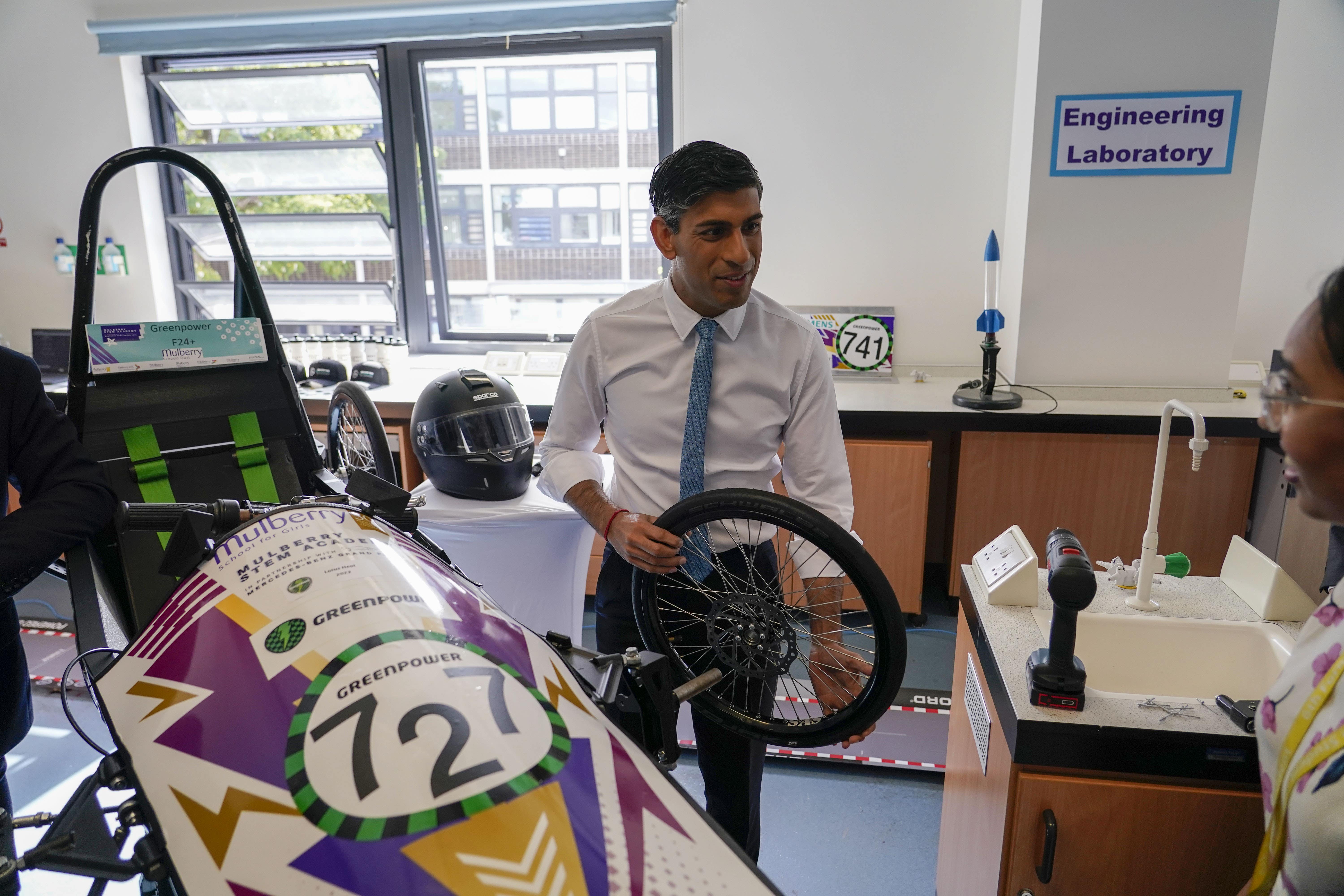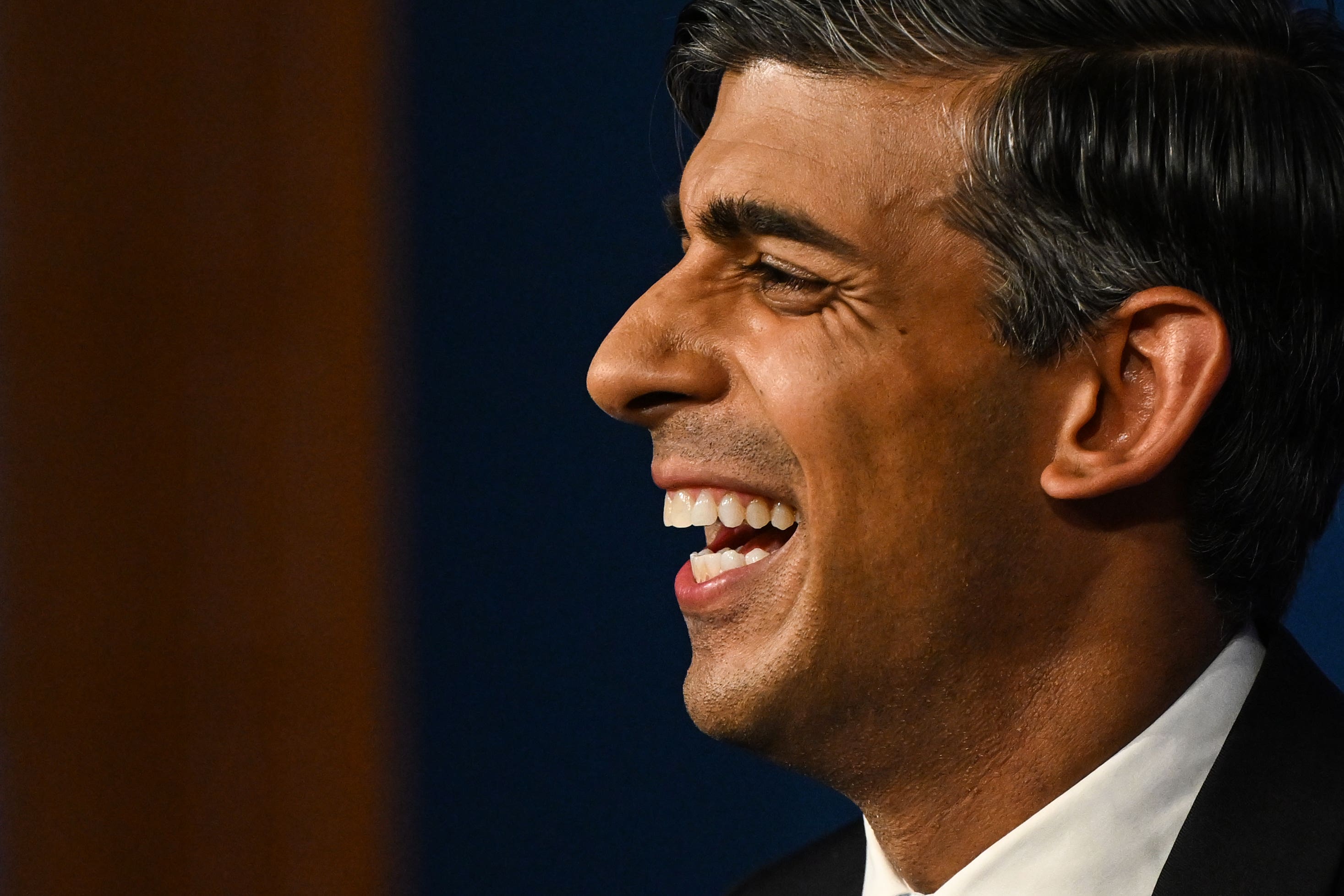Sunak says blanket 20mph zones and low traffic neighbourhoods ‘need to stop’
PM claims he will be ‘slamming the brakes’ on anti-motorist measures

Your support helps us to tell the story
From reproductive rights to climate change to Big Tech, The Independent is on the ground when the story is developing. Whether it's investigating the financials of Elon Musk's pro-Trump PAC or producing our latest documentary, 'The A Word', which shines a light on the American women fighting for reproductive rights, we know how important it is to parse out the facts from the messaging.
At such a critical moment in US history, we need reporters on the ground. Your donation allows us to keep sending journalists to speak to both sides of the story.
The Independent is trusted by Americans across the entire political spectrum. And unlike many other quality news outlets, we choose not to lock Americans out of our reporting and analysis with paywalls. We believe quality journalism should be available to everyone, paid for by those who can afford it.
Your support makes all the difference.Rishi Sunak said he is “slamming the brakes” on “hare-brained schemes” such as blanket 20mph speed limits and low traffic neighbourhoods (LTNs).
The prime minister has vowed to focus on policies that stem the “relentless attack on motorists”.
He told The Sun: “I’m slamming the brakes on the war on motorists – it is as simple as that.”
The remarks come as his Conservative administration in Westminster announced a slew of pro-driving measures ahead of the Tory Party conference in Manchester on Sunday.
The Department for Transport (DfT) said guidance would be reviewed on 20mph limits to “prevent their blanket use in areas where it is not appropriate”.
The same undertaking would be happening for LTNs in England to “focus on local consent”, officials said.
The Whitehall department also announced that a National Parking Platform pilot will be rolled out, meaning that drivers should only have to use an app of their choice to pay for parking instead of downloading multiple apps.
Ahead of the DfT’s announcement on Friday, Mr Sunak said the decision by the Labour-run Welsh government to drop the default speed limit from 30mph to 20mph for restricted roads was “not right” and the UK Government would take a “different approach”.
He confirmed that local councils in England face a clampdown on “overzealous” enforcement of parking and yellow box junctions. Charges will also be applied on utility firms who dig up roads during peak times, with the extra money diverted to fixing potholes, it has been confirmed.

As part of the package of measures, DfT officials said guidance will be strengthened to make sure bus lanes only operate “when necessary” and a consultation will be launched on motorcycles using bus lanes.
More details are expected to be set out in transport secretary Mark Harper’s speech to Tory members on Monday.
In a statement, Mr Harper said: “Too often the private car is vilified when it has been one of the most powerful forces for personal freedom and economic growth.
“That’s why the government is taking the long-term, necessary decision to back the motorists who keep our country moving.
“We’re introducing a plan to ensure drivers can enjoy smoother journeys, park more easily and no longer face unfair and oppressive traffic enforcement measures.”
The PM told The Sun: “What we want to do now is make sure that all these hare-brained schemes forced on local communities, whether it is low traffic neighbourhoods, whether it is blanket 20 mile an hour speed limits, all of that… (they) need to stop.
“What we want to make sure is that local communities are not having these things imposed upon them, forced on them. We’ve seen that happening in Wales. That’s not right. And we’re going to take a different approach to this.”
He said cars were “freedom for most people” and that penalising motorists “doesn’t reflect the values of Britain”.
Asked whether he had ever received a speeding fine, Mr Sunak said he “probably” had but “not for a very long time”.
The PM has pledged to crack down on “anti-motorist” policies and last week delayed the ban on the sale of new conventionally fuelled cars and vans from 2030 to 2035.
The Welsh government is predicting its change to 20mph speed limits will save up to 100 lives and 20,000 casualties in the first decade.
First minister Mark Drakeford said there is “incontrovertible” evidence that “driving more slowly in built-up urban areas saves people’s lives”.
A Department for Transport-commissioned study published in November 2018 found 20mph limits in residential areas were supported by the majority of residents and drivers.
The report concluded there was no evidence of a significant drop in the number of crashes and casualties after the introduction of 20mph limits.




Join our commenting forum
Join thought-provoking conversations, follow other Independent readers and see their replies
Comments